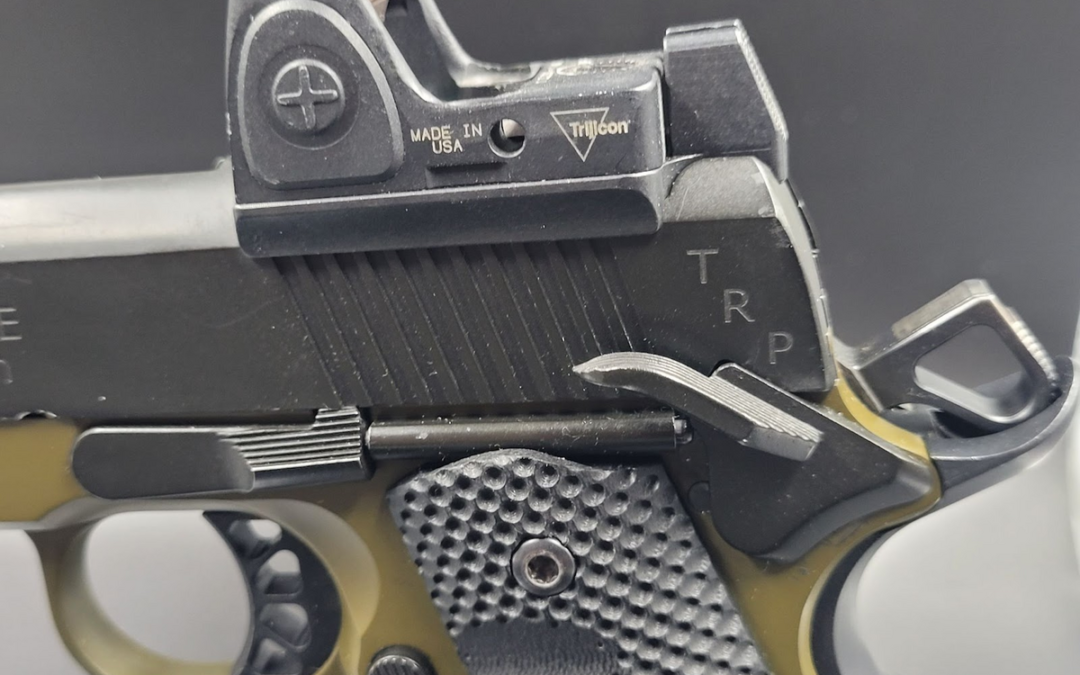Weighing the Options: Concealed Handgun Permit vs. Constitutional Carry in Nebraska
Nebraska offers two options for individuals seeking to legally carry firearms: obtaining a concealed handgun permit (CHP) or exercising the right to constitutional carry. Both approaches have their own distinct advantages and disadvantages. In this article, we will explore the key considerations surrounding the decision to obtain a CHP or opt for constitutional carry in Nebraska.
Advantages of Concealed Handgun Permit (CHP):
- Enhanced Reciprocity and Travel: One of the significant advantages of obtaining a CHP in Nebraska is the reciprocity it offers. A valid CHP enables individuals to carry concealed firearms not only within the state but also in other states with which Nebraska has reciprocity agreements. This reciprocity allows for a broader range of travel and provides the permit holder with consistent legal protection across state lines.
- Comprehensive Training and Knowledge: To obtain a CHP in Nebraska, applicants must undergo training that covers important aspects such as firearm safety, state laws, and proper handling techniques. This training ensures that permit holders have a solid foundation of knowledge and skills, promoting responsible gun ownership. The comprehensive training can instill confidence in individuals and enhance their ability to handle firearms safely and effectively.
- Legal Clarity and Reduced Risks: By obtaining a CHP, individuals gain a clear understanding of the legal requirements and restrictions associated with carrying concealed firearms. Permit holders are informed about specific places where concealed carry is prohibited, reducing the risk of unintentional violations and potential legal consequences. This legal clarity provides peace of mind and a layer of protection when carrying a concealed handgun.
Disadvantages of Concealed Handgun Permit (CHP):
- Costs and Administrative Burden: Obtaining a CHP in Nebraska involves various costs, including application fees, training course expenses, and potentially additional fees for fingerprinting and background checks. Additionally, applicants need to dedicate time to complete the necessary paperwork and attend the required training courses. The financial and administrative burdens associated with obtaining a permit may deter some individuals.
- Potential Restrictions on Non-Permit Holders: One notable drawback of the CHP system is that it imposes restrictions on non-permit holders. Individuals who choose not to obtain a CHP do not have the same privileges, potentially creating a disparity between permit holders and non-permit holders in terms of their rights to carry concealed firearms.
Advantages of Constitutional Carry:
- Unrestricted Exercise of Second Amendment Rights: Constitutional carry allows individuals to exercise their Second Amendment rights without the need for a permit. Supporters argue that the right to bear arms is inherent, and constitutional carry aligns with the fundamental principles of the Constitution. It provides individuals with the freedom to carry concealed firearms without undergoing a permitting process.
- Simplicity and Cost Savings: Constitutional carry simplifies the process of carrying concealed firearms by eliminating the need for a permit. This streamlined approach saves individuals from incurring costs associated with permit application fees, training courses, and renewals. It also reduces the administrative burden, making it more accessible for individuals who prioritize simplicity and lower expenses.
Disadvantages of Constitutional Carry:
- Limited Reciprocity: One key drawback of constitutional carry is the potential limitation on reciprocity with other states. While Nebraska may recognize the constitutional carry rights of its own residents, other states may not extend the same recognition. As a result, individuals who choose constitutional carry may face restrictions when carrying concealed firearms in states with different laws and regulations.
- Potential Lack of Comprehensive Training: Unlike the training requirements for a CHP, constitutional carry does not mandate specific training or education related to firearm safety, handling, or state laws. This may result in some individuals carrying firearms without adequate knowledge or training, potentially increasing the risks associated with firearm
In conclusion, the choice between obtaining a concealed handgun permit (CHP) and exercising constitutional carry in Nebraska depends on a range of individual factors, including personal preferences, priorities, and lifestyle. While a CHP offers enhanced reciprocity, comprehensive training, and legal clarity, and possible legal protections, it comes with costs and administrative burdens. Constitutional carry, on the other hand, simplifies the process and costs less but may limit reciprocity and potentially lacks comprehensive training. Ultimately, it’s crucial for individuals to carefully weigh these advantages and disadvantages in light of their own circumstances and priorities, always adhering to the laws and regulations governing responsible firearm ownership and carry in Nebraska.


